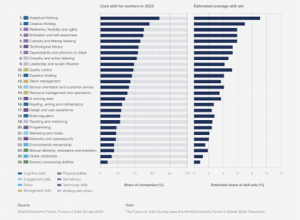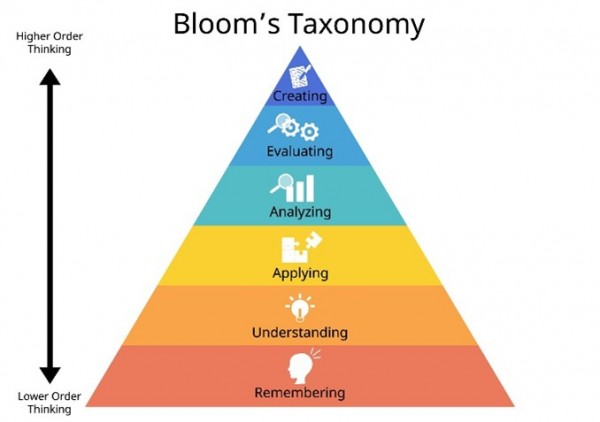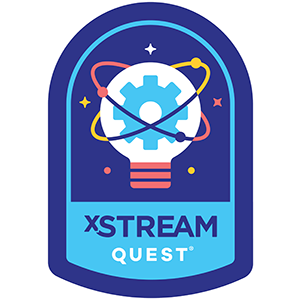
The Power of Play: Unveiling the Hidden Learning Gem
In the vibrant world of preschoolers, play is not just a pastime; it’s a profound educational experience. Preschoolers’ play can be compared to a geode. On the surface a geode looks like a plain brown rock, but when you look inside you find something wonderous, crystals! The play of preschool-age children is similar - to the untrained eye, their play looks chaotic and even out of control at times, but beneath the surface, every laugh, every squeal, and every imaginative scenario is a lesson in disguise.
Let’s delve into the captivating realm of preschool play and uncover the myriad ways in which children learn through their seemingly innocent play.
Cognitive Growth: From building block towers to solving puzzles, preschool play is an instrument for cognitive development. As children manipulate objects, they learn about shapes, sizes, and spatial relationships. Through trial anderror, they develop problem-solving strategies and enhance their criticalthinking abilities. Moreover, imaginative play stimulates creativity andfosters abstract thinking, essential skills for navigating the complexities ofthe world. Research is revealing that these types of playful experiences arecrucial to helping develop creative and analytical thinking, two critical lifeskills. According to the World Economic Forum’s report “Future of Jobs Survey2023,” analytical thinking and creative thinking are #1 and #2 on their list of core skills workers need for the future.

Developing Social Skills: Learning centers such as dramatic play and blocks often are disregarded by parents as learning venues and seen as chaotic areas in a preschool classroom. These areas are full of educational cognitive skill development gems such as cause and effect and creating environments! But in addition, these are wonderful places for children to practice the social skills needed to navigate relationships. Negotiating roles in make-believe scenarios, they learn to understand others’ perspectives and communicate their own thoughts and feelings effectively.
Emotional Regulation: In the whirlwind of preschool play, emotions run high and conflicts inevitably arise. Yet, these moments of friction are invaluable opportunities for emotional growth. Through negotiation, compromise, and conflict resolution, children learn to manage their emotions, regulate their impulses, and navigate social dynamics effectively. Because of the child-initiated aspect of learning centers, they become a laboratory for emotional intelligence, where preschoolers develop the resilience and self-awareness needed to thrive in diverse social settings.
Enhancing Language Abilities: Listen closely to a group of preschoolers engaged in imaginative play and you’ll hear a symphony of language development. Whether they’re acting out a story, engaging in pretend conversations, or simply narrating their actions, children are constantly honing their vocabulary, grammar, and storytelling skills. Play provides them with arch context for language exploration, laying the foundation for proficient communication in the years to come. Preschool children learn language skills in every learning area within a preschool classroom.
Fine and Gross Motor Skills: Fine motor skill development is more than learning to control a pencil and write letters. From scribbling with crayons to stringing beads, every movement contributes to their physical development and lays the groundwork for future motor proficiency. Children playing with loose part manipulatives or playing in a sand/water table a redeveloping fine motor skills muscles needed for future writing. Running, jumping, climbing, and balancing – preschool play is a full-body workout that also strengthens fine skills in addition to obvious gross motor skills. Whether they're engaged in indoor activities or outdoor play, children are constantly refining their coordination, balance, and muscle control.
Cultural Understanding: Through imaginative play, preschoolers explore and make sense of the world around them, including its diverse cultures and traditions. Whether they’re dressing up in costumes from diverse cultures, cooking pretend meals from around the world, or reenacting historical events, children develop an appreciation for diversity and cultivate a sense of cultural empathy.
The Lighthouse Pathways® Approach to Learning at Children's Lighthouse Early Learning Schools is built on Bloom’s Taxonomy where creating, evaluating, and analyzing are the prized skills for lifelong learning and future success. Our Learning Areas, Leaning Centers, and Learning Labs support children's development of the top thinking skills through child-initiated explorative play.

Learning center time is far more than mere free play; it’s a multifaceted learning experience that nurtures every aspect of a child’s development. From cognitive abilities to social skills, emotional intelligence to physical prowess, play lays the foundation for lifelong learning and growth. At Children’s Lighthouse, our teachers are taught to extend playful learning through asking children open-ended inquiry questions. We believe in this concept of scaffolding and extending learning through language interactions smouch that we have imbedded Inquiry Questions to our learning environment and materials. Below is a list of learning centers and the verbs associated with each level of thinking according to an article by the Center For Innovative Teaching and Learning at Northern Illinois University. So, the next time you witness a group of preschoolers immersed in their imaginative worlds, remember that beneath the laughter and the chaos, a profound educational journey is unfolding.
Learning Centers at Children’s Lighthouse
Supporting Creative & Analytical Skill DevelopmentART
Creative Skills:
change, combine, compare, compose, construct, create, design, devise, formulate, generate, hypothesize, imagine, improve, invent, plan, predict, propose
Analytical Skills:
analyze, appraise, attribute, compare, contrast, differentiate, distinguish, identify, infer, investigate, organize, separate, sequence, test
Creative Skills:
change, combine, compare, construct, create, design, devise, formulate, generate, hypothesize, imagine, improve, invent, plan, predict, propose
Analytical Skills:
analyze, appraise, attribute, categorize, compare, contrast, differentiate, distinguish, examine, identify, infer, investigate, organize, separate, sequence, test
Creative Skills:
change, combine, compose, construct, create, design, devise, formulate, generate, imagine, invent, plan, propose
Analytical Skills:
advertise, appraise, attribute, categorize, compare, contrast, differentiate, distinguish, examine, identify, infer, investigate, organize, separate, sequence, test
Creative Skills:
compare, compose, create, design, devise, formulate, generate, imagine, plan
Analytical Skills:
advertise, categorize, compare, contrast, differentiate, distinguish, identify, organize, outline, separate, sequence
Creative Skills:
change, combine, compare, create, imagine
Analytical Skills:
categorize, compare, contrast, differentiate, distinguish, examine, identify, organize, separate, sequence
Creative Skills:
change, combine, compare, formulate, generate, hypothesize, predict
Analytical Skills:
analyze, appraise, attribute, categorize, compare, contrast, differentiate, distinguish, identify, organize, separate, sequence
Creative Skills:
change, combine, compare, compose, construct, create, design, devise, formulate, generate, hypothesize, imagine, improve, invent, plan, predict, propose
Analytical Skills:
analyze, appraise, attribute, categorize, compare, contrast, differentiate, examine, identify, investigate, organize, separate, sequence, test
Creative Skills:
change, combine, compare, construct, create, devise, formulate, generate, hypothesize, improve, invent, plan, predict, propose
Analytical Skills:
analyze, appraise, attribute, categorize, compare, contrast, differentiate, distinguish, examine, identify, infer, investigate, organize, separate, sequence, test
Creative Skills:
change, combine, compare, compose, construct, create, design, devise, formulate, generate, improve
Analytical Skills:
analyze, appraise, attribute, categorize, compare, contrast, differentiate, distinguish, examine, identify, organize, separate, sequence



